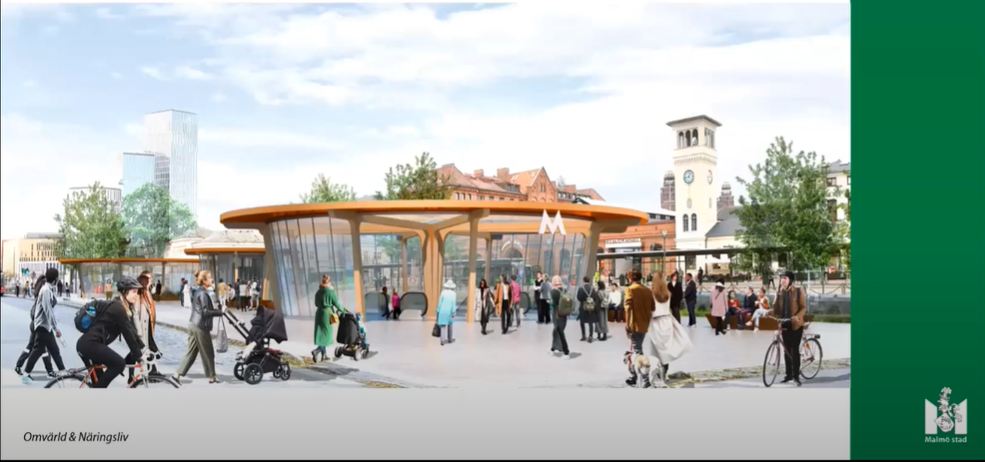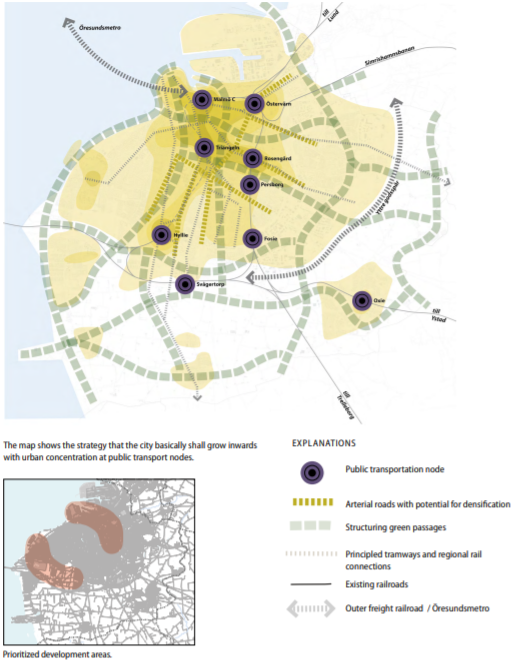Redevelopment of existing urban fabric ensures that residents can live close to jobs, activities, services, and other destinations, resulting in reduced travel times and greenhouse gas emissions. “Upgrading of the urban environment surrounding stations and terminals in combination with safe and dedicated walking and cycling paths to public transport nodes increase the willingness to walk or cycle to a station by up to 70 percent”, says Leif Gjesing Hansen, Community Planning and Establishment Project Leader at the City of Malmö.
Accelerating the deployment of electric mobility (Kigali, Rwanda)
Electric mobility has enormous potential to improve sustainable urban transport systems. Challenged with issues ranging from congestion, pollution, and deteriorating infrastructure, the City of Kigali, Rwanda is planning to scale up its electric mobility.
The planned Bus Rapid Transit (BRT), in close collaboration with the ministries in charge of transport and energy and other transport institutions, will introduce electric buses with feeder services provided by electric bikes, as well as gender-inclusive electric motorcycle taxis. An e-bike sharing scheme will be tested along the most widely used bus corridors with charging points powered by solar energy, allowing seamless, connected travel.
Putting users’ needs at the core of transport services (Quito, Ecuador)
The urban mobility landscape is evolving fast and the innovations in data and technology in transportation have led to new forms of on-demand, flexible mobility services. However, for the users, it can be challenging to be confronted with all the options. This is where the Mobility as a Service (MaaS) concept steps in. MaaS fulfills users’ mobility needs with a wide range of transport services and integrates end-to-end trip planning, ticketing, and payments services.
Quito, the capital and largest city of Ecuador, is putting the transport users at the core of its transport services with the aim of building smart cities for all. As part of the AI for Inclusive Urban Sidewalks project, the city is working to standardize data sources and use artificial intelligence to measure the accessibility of sidewalks across neighborhoods. Such information will be scaled up to the entire city and linked to the city’s Mobility Master Plan. These advances enable better integration between various modes of transport and facilitated more environmentally-friendly urban trips.
Putting urban freight on the radar (Rosario, Argentina)
An efficient freight system forms an integral part of a productive economy and a people-centered urban environment. The City of Rosario, Argentina is rethinking its urban logistics system and aims to integrate zero-emission freight vehicles with its existing public bike share system Mibici Tubici. With now more than 200 kilometers of bike lanes in the city, Rosario plans to expand its cycling network and is looking to widen the bike lanes for cargo bikes.
“During the pandemic, it was a good move to explore new topics in urban planning. I am not saying that we have the perfect urban mobility system, but it is important to explore more aspects of mobility, and we need to think about freight as well and integrate it into overall mobility planning”, says Eleonora Piriz, Integral Planning Manager of the City of Rosario.
The road ahead
The approaches above were just some of the solutions presented at the session “All roads lead to healthier and climate neutral cities”, organized by ICLEI Sustainable Mobility as part of the “Road to Malmö” Webinar Series. Although these cities are taking steps toward creating more sustainable cities, the need to examine the current stresses on mobility in urban environments has never been greater.
The COVID-19 pandemic has forced cities to quickly adapt to the demands of a changing environment and has given cities a glimpse into a more livable future, as lockdowns brought a rare respite from gridlocks and cleared skies. It is important that cities continue to promote public transportation, active mobility, electric mobility, and other sustainable alternatives as the core of the mobility ecosystem.
—–
The session All roads lead to healthier and climate neutral cities is available to watch on-demand.
This session was organized in collaboration with the projects: ICLEI World Congress 2022, SOLUTIONSplus project, and ICLEI’s IKI EcoLogistics project.




